The East Norton village Shop circa 1950
Rosemary at School
Inside the Post Office / shop
The pump in the yard
The left hand door (since blocked in) was the shop entrance
In the front garden
Dad with his camper van
From L to R Christine Cheesewright, Susan Cheesewright, Rosemary Gerard
As above but Mr. Gerrard replacing Rosemary
Left to Right, Susan Cheesewright, Unknown, Christine Cheeswright with Timmy the dog
The Old School Bus
by
ROSEMARY GERARD FORM 2R
Oh what a scurry every morn,
A wash and breakfast on the trot.
Wishing oft that I’d ne’er been born,
The thought “I’ll miss it” makes me hot.
As remnants of my food I munch,
I bid my quacking heart be steady.
Where’s my hanky and where’s my lunch,
Homework packed, my satchel ready.
Then from the distance comes the call,
“Come on, here comes the old school bus”
With ruffled feelings quit the hall
To view what causes all the fuss.
‘Old Biscuit Tin’ to us she’s known,
‘Gift Horse’ on which we daily ride.
With lots of creaks and often groans
Jock starts her in her daily stride.
When lessons for the day are o’er,
And homeward then our way we wend,
Our driver then in anger swore,
As we sing and drive him round the bend.
At our fun he begins to baulk,
Then with a cuff and with a cuss,
He puts us off, back home to walk.
Oh damn that blinking old school bus.
****************************************
Rosemary Murray (nee Gerard) remembers life in East Norton in the 1950's
(Written in August 2005)
We moved to East Norton around February 1954, my mother, two brothers and myself. My father joined us a few months later.
Edwin and Ivy Gerard, and children Anthony, Rosemary and Paul.
Tony Heycock was Squire at the Hall – he owned most of the village at that time. We understood he had been a fighter pilot during the war, certainly he had served in planes if he was not a pilot. He had been very badly burned in a plane crash and as a result had facial scars, but he was a lovely man, very well thought of in the village.
He had four daughters, Verena, Celia, Yvonne- known as “Yonnie” and I cannot remember the fourth name.
I do remember one bonfire night when we were all invited to join in the fireworks display he was arranging for his girls – we just took along the few fireworks we had. He also held a summer fete on his lawns with folk dancing, ballet dancing, pony rides (on the girls’ ponies), coconut shy, skittles, stalls etc. I can remember the men chasing a pig but whether that was one of the games, or the pig was a prize that escaped I really don’t know. As children we were always allowed to play in his fields providing we always shut the gates, didn’t trample any crops, and didn’t disturb any animals.
P.C. Buchanan used to care for a seaside donkey over the winter months whilst it was “resting” and kept it in the stable/garage at the end of the New Police House drive. Mr Heycock let him graze the donkey in his fields down Loddington Lane, and we children used to go to fetch it home. The ulterior motive was of course the fact that we used to take it in turns to have a little ride. My turn, being the only girl, came last, and the boys - not really wanting me to have a turn – gave the donkey a mighty whack on its rump, startling the poor thing who took off like a rocket (or so it seemed to me). Not having a clue as to riding techniques, I was saved the fate of shooting out onto the main road by the motion of the donkey’s gait which jerked me backwards, pulling the reins, and we came to a halt. I was never allowed back on the donkey, the boys deciding that I was a liability. Personally I think they got a scare which they thoroughly deserved.
Tom Staples lived in Walnuts Farm, the house next to the New Police House. The house in those days was just the Tudor looking part – the rest of the present day house was cow sheds. Robert Staples, Tom’s brother (?) lived in the end house of the row opposite (Neatsgate Farm). The pub was also in this row. He was also a farmer, like Tom, and rented fields from Mr Heycock, one of which was the field next to us at the Post Office.
Bertie Bray lived in the house next to Tom Staples. His wife was a teacher and they had three children, a boy and two girls. Mr Bray taught my mother and some years later (1961/2), myself, to drive. As we both passed first time he must have been a good instructor.
In Church Lane Eva Wortley and her brother lived in Brooke Cottage. She supplied the eggs to the village and brought the surplus to our shop to sell. Being one of the first people to own a television in the village, she kindly allowed us to go to her house on Friday nights to watch the television with her. “Take Your Pick” with Michael Miles and I think probably next was the “Black and White Minstrel Show”. We were then supposed to go home, however, the hit show from America “Dragnet” with Jack Webb was the next programme. It was very popular and we would use delaying tactics to try to watch it – not very often with success.
The Cheesewrights lived at the top of Church Lane – Jack Cheeswright was the father’s name. The children were Jean, Robert, Michael, Susan and Christine. Susan, Christine, my two brothers and myself became the church choir, although we were not particularly reverent. At times we amused ourselves by playing Consequences, throwing papers across the chancel to each other. On one occasion we poured a jug of water on the Vicar’s hassock so he got wet knees when he knelt down to pray. No doubt he rued the day he decided to form a choir. I believe his parsonage was in Allexton. At Christmas we used to visit other churches in his charge, Loddington church was quite an experience.
Some of us went to the Grammar School in Market Harborough where there was a Cinema Club. On the days when we stayed to watch a film, we missed the School Bus, so it was a mad dash from one end of town to the other to catch the train home.
My mother ran the shop and Post Office, my father worked for Lord Allerton, so it meant a long working day for them both when they took on the last six months of the lease on the pub, The White Bull, from Northamptonshire Breweries. No one else in the village was able or willing to do so. My brothers and I made the most of our unexpected freedom and got up to all sorts of tricks instead of going to bed as we should. Fortunately for us the shop bell would ring signalling the return of our parents, giving us time to be safely snuggled in bed by the time they reached our rooms.
The pub’s claim to fame was a visit by “Phil Archer” of “The Archers” radio serial, who was very nice and friendly, but I was so disappointed – he was so ordinary – I think I must have expected some kind of God-like being.
We children had a wonderful time exploring all over the many rooms of the pub, especially the parts we were warned not to go in! We often went scrumping the fruit trees behind the pub. Many were the tummy-aches we suffered in silence from eating the pears before they were ripe.
Two old ladies (or so they seemed to me) lived in the Old Police House, and we children all took the opportunity to visit the cell.
Mr and Mrs Geary and Donald lived in the Bungalow. Mrs Geary delivered the daily newspapers and my brothers and I delivered the Leicester Mercury and the Sunday Papers. That was how we children earned our pocket money, we delivered the papers when we arrived home from school and on Sunday we delivered the papers before we had breakfast. I always went quickly through the grounds of the Hall as their Pug Dogs were very snappy.
Charlie and Rose Frossil lived in the end cottage on Loddington Lane. They were such a lovely couple, so very kind – they had a daughter – Joyce I think her name was.
In one of the semis on the left hand side going towards the Station lived Jim and Peggy Ovens. They had a little girl, and later had a little boy. I went to see her soon after the little boy was born. I remember it so well as when she went to change him, he peed into her cup of tea. She said she wasn’t used to boys, having only the little girl before.
Up at the Station I remember there were the Hubbards and the Wades. There were probably more families there. One family had all boys and then they had a little girl – I think her name was Rita. Her family were thrilled when she was born – they were so proud of her – she was a pretty little thing. Her mother used to bring her to the shop and sit her up on the counter, I do remember that.
After P.C. Buchanan left, we had another policeman, Len Yates, his wife Anne and four children, all boys. Stephen was the eldest, the twins and John. I am not sure how many years they stayed for.
At the shop for a year or two we ran a snack bar and tea rooms. We also served teas on the front lawns in summer. We were only able to do this when the other half of the property was not rented. The house was in two units in those days. There was a youngish couple there when we came, but they left and it was empty until my Aunt Daphne (Voller) my father’s sister, her mother (Agnes Gerard) and daughter Celia came to live there.
Sometimes we village children roamed around the village on our own on Bonfire Night, and once we went to the allotments on Hallaton Lane and stuck bangers in the cabbages – they made a lovely explosion. Another time we threw the bangers a in the alleyway around the terraced cottages in Loddington Lane, they made a wonderful loud bang. Unfortunately we were caught by P.C. Buchanan on that occasion and received a clout each for our inconsiderate behaviour – I expect he worked out who destroyed the cabbages as well.
My parents eventually moved to School Farm at Loddington and my mother sold the business to her brother, George Horsewood and his family. They stayed for some years until he had a heart attack while driving his van on the road up the hill towards Tugby. Fortunately the van went into the ditch at the side. It was my uncle who installed the first indoor bathroom at the Post Office. Prior to that the bath was in the outbuildings where there was a copper boiler that we had to fill with water from the pump in the yard. (See photo above left)
Rosemary adds that she remembers that the school buses were run by CENTRAL COACHES from CENTRAL GARAGE in Uppingham, and N&S Coaches.
Jock, Walter and John were the drivers. John's surname was Glenn and he bought the Central Garage and coaches during the period that Rosemary travelled to school on them.
The 'Biscuit Tin' was very old and creaky. It was also freezing cold in the winter, having no heating. Rosemary still well remembers the chilblains of those winters.



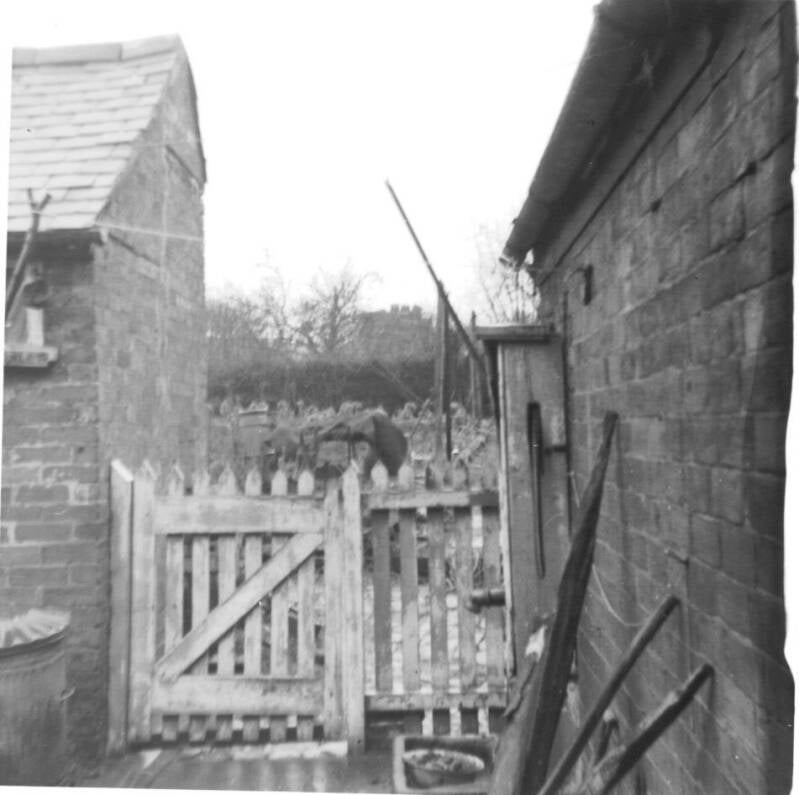
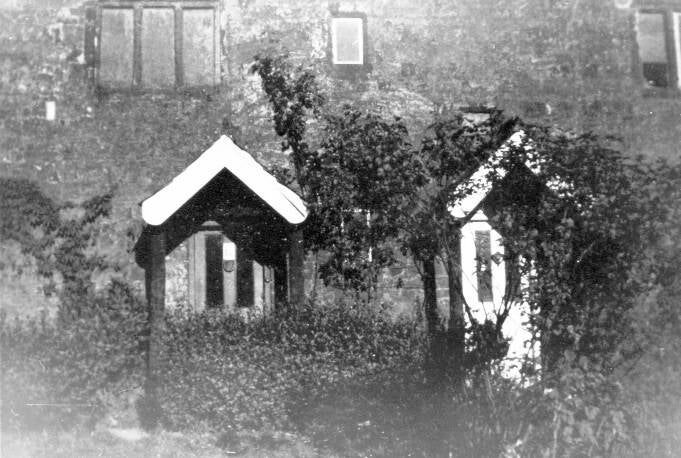
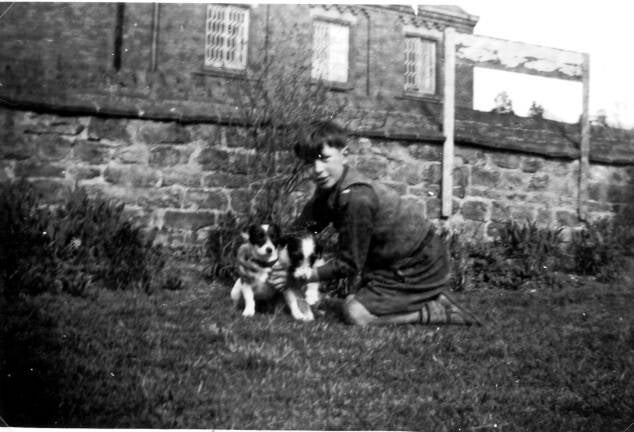
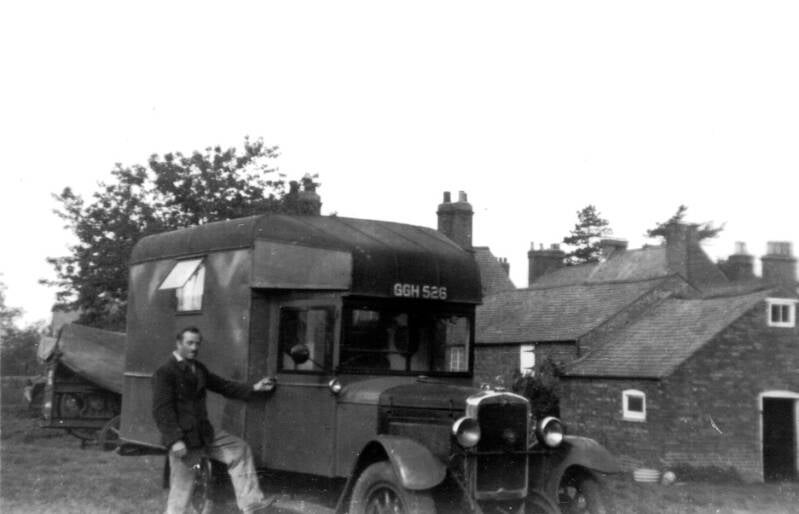
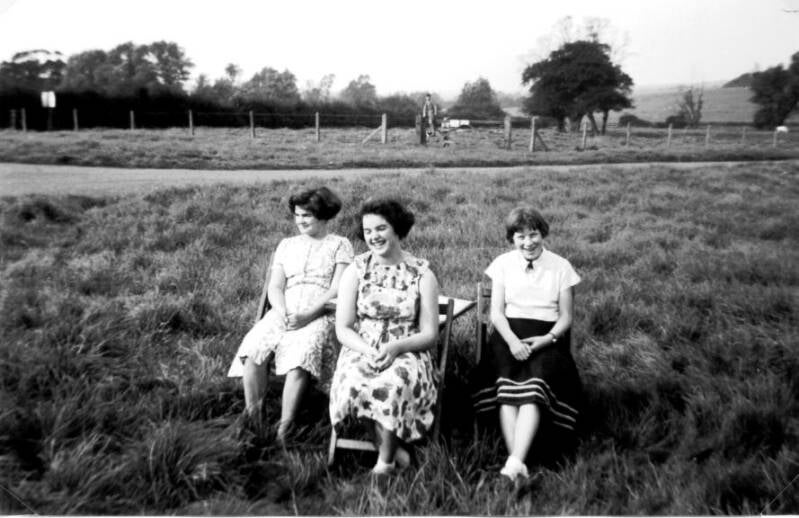
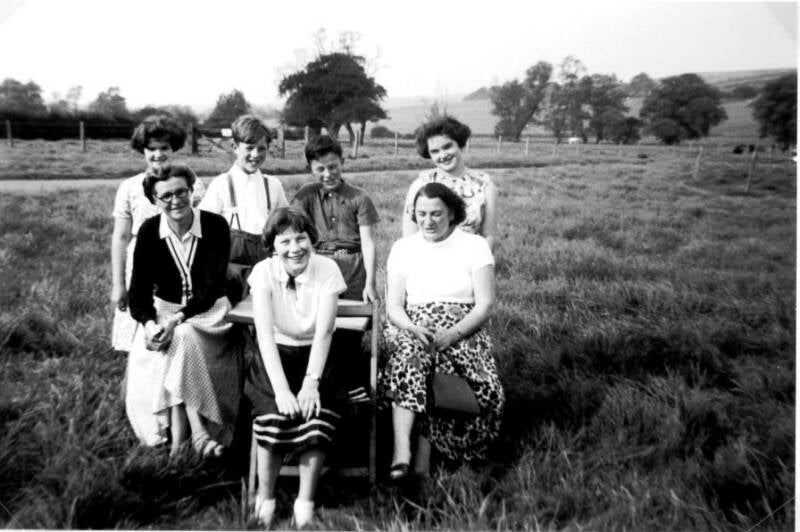

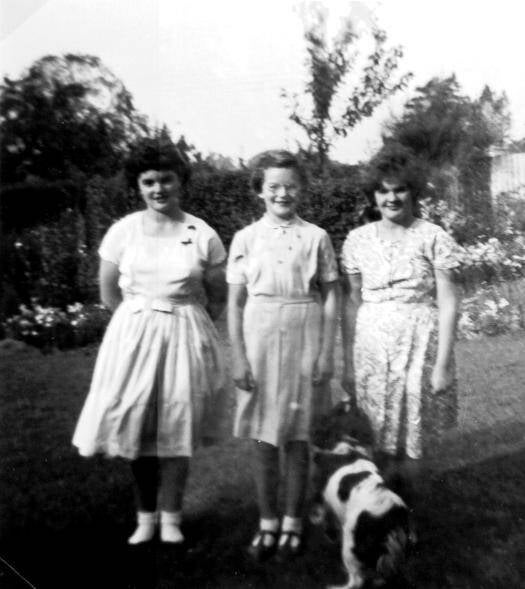
Create Your Own Website With Webador